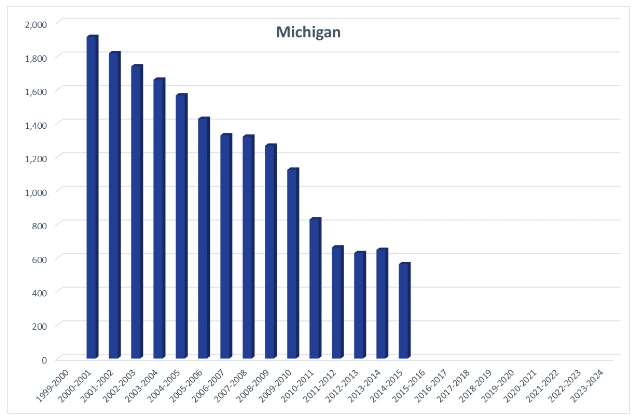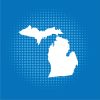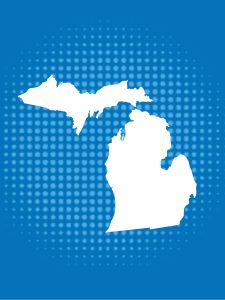Michigan no longer requires parents to report homeschool participation, but it is suggested.
History
Located in the midwestern region of the United States, Michigan legalized homeschooling in 1996. Prior to 1996, homeschooling was illegal unless parents were certified teachers. The landmark People v. DeJonge case changed that policy.
Regulation
Michigan does not require parents who elect to homeschool their children, ages 6 to 18, to notify or report to anyone. The only exception is for parents requesting services from their local school. However, reporting is suggested, so that the student is not counted as truant. See here for more details. Michigan provides two options for home instruction – as a homeschool or as a nonpublic school. Requirements differ between the homeschool and nonpublic school models. Michigan does not have minimum parental education requirements for homeschooling. If a parent registers as a nonpublic school, then the parent must have a bachelor’s degree and provide instruction in the core subjects. There is no required record keeping or instructional hours.
Homeschooled students may participate in the statewide assessments free of charge, and results are provided to families for information on student progress. See subsection 11. Test scores are reported directly to the student. Otherwise, testing is not required for homeschooled students.
Homeschooled students can enroll in nonessential elective courses in their local public schools. The district determines access to other offerings like sports. According to Michigan policy, homeschooled students with special needs may be eligible for special services upon request.
State Data
Michigan changed the homeschool policy and stopped collecting and reporting information on homeschool participation around 2015. Around 1,900 students reported homeschooling in 2000. Participation counts decreased over the next decade. However, it is unclear if this is a reduction in participation or a change in reporting. The U.S. Census estimates provide more recent information.

U.S. Census estimates indicate that around 5.3% of Michigan families homeschooled in the spring of 2020 and increased to 11.3% by the fall of 2020. These are very close to the national averages at that time, at 5.4% and 11.1% respectively. Based on U.S. Census data, our calculations indicate that about 5.04% of K-12 students in Michigan were homeschooled during the 2022-23 school year, and 6.58% during the 2023-24 school year. Due to survey changes, the data from 2020 reflects the percentage of households, while the data from following years reflects the percentage of students.
Cross-Sector Comparison
We cannot calculate a cross-sector comparison due to missing homeschool participation data.
School Choice Context
In addition to homeschooling, Michigan parents have several educational choices available. These options include inter- and intra-district choice in traditional public schools, including magnet and charter schools. There are no private school choice programs in Michigan.
Commentary
Michigan could increase access to all nonpublic students for offerings at public schools, including extracurriculars and courses.

-
11.3% Families
Around 11.3% of families in Michigan homeschooled during the height of the pandemic (Fall 2020).
-
1996 Legalized
Homeschooling was legalized in 1996 in the state of Michigan.
-

-
More Information
11.3% Families
Around 11.3% of families in Michigan homeschooled during the height of the pandemic (Fall 2020).
1996 Legalized
Homeschooling was legalized in 1996 in the state of Michigan.

More Information
Last updated March 2025.